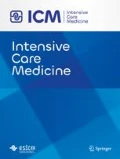Abstract
Objective: We sought to study the prevalence of angiotensin-converting enzyme (ACE) inhibitors, a cause of angioedema, and investigate any association between clinical findings at the time of presentation and clinical outcome. Design and setting: Retrospective review of the charts of all patients presenting with angioedema to the emergency department at our tertiary referral teaching hospital or clinics over a 4-year period. The charts were reviewed for documentation of chief complaint(s), physical findings, medical treatment, need for laryngoscopy and/or endotracheal intubation, triage, and probable etiology. Results: Of the 40 patients presenting with angioedema in this study, 15 cases were caused by ACE inhibitors. They were the most common cause of angioedema, accounting for 38 % of all cases. The incidence of ACE inhibitor-induced angioedema is estimated to be 0.14 %. More patients with angioedema secondary to ACE inhibitors had complaints of odynophagia (p < 0.02), whereas only patients with non-ACE inhibitor causes of angioedema presented with pruritus (p < 0.02). Furthermore, patients presenting with an acute reaction within 24 h of exposure to the causative agent were more likely to require inpatient monitoring (p < 0.05). Both odynophagia and edema of the tongue were significant predictors for undergoing laryngoscopy (p < 0.001 and p < 0.02, respectively) and admission to the hospital (p < 0.05). Conclusion: ACE inhibitors are the number one cause of acute angioedema in this tertiary referral teaching hospital. Odynophagia and tongue swelling at the time of presentation had significant implications for diagnostic intervention and admission to the hospital.
Similar content being viewed by others
Author information
Authors and Affiliations
Additional information
Received: 29 May 1996 Accepted: 27 February 1997
Rights and permissions
About this article
Cite this article
Agah, R., Bandi, V. & Guntupalli, K. Angioedema: the role of ACE inhibitors and factors associated with poor clinical outcome. Intensive Care Med 23, 793–796 (1997). https://doi.org/10.1007/s001340050413
Issue Date:
DOI: https://doi.org/10.1007/s001340050413




